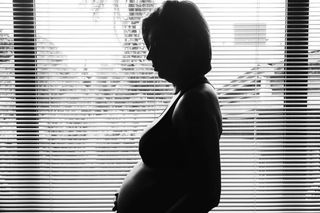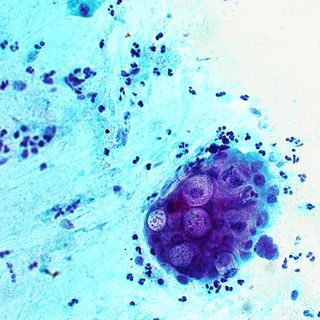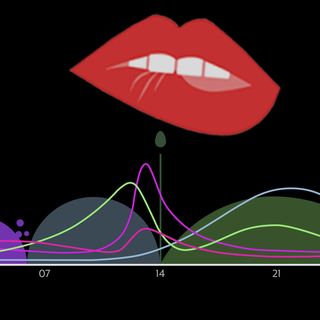
Prenatal Depression More Likely to Affect Women With a History of Depression, Low Self‑Esteem
Chances of a miscarriage or premature delivery could be higher if depression during pregnancy is left untreated.

Prenatal depression is a form of clinical depression that affects women during pregnancy. Also known as antenatal depression, it is said to be caused by a hormonal imbalance. Hormonal changes during pregnancy, however, are normal, so it’s unlikely to be the only reason for women to experience depression while pregnant.
The National Center for Biotechnology Information (NCBI) states that prenatal depression, “has now been documented as a global public health problem owing to its severity, chronic nature, recurrence, and its negative influence on the general health of women and development of children.” According to the American Congress of Obstetricians and Gynecologists, prenatal depression affects up to 23% of expectant mothers globally, but a 2015 study revealed that an estimated 80% of them are never diagnosed. are never identified as suffering from prenatal depression.
Prenatal depression can occur in women at any stage during the pregnancy. It is different from early-onset postpartum depression because the latter occurs shortly before childbirth, is mild, more common, may last a couple of weeks and doesn’t require medication. Postpartum depression is a mood disorder that can affect women after childbirth; it typically develops within four to six weeks after giving birth but can develop prior to birth or even take several months to appear after.
The signs and symptoms of depression during pregnancy don’t differ much from depression at any other time; therefore, it’s easy for prenatal depression to go undiagnosed. This can have harmful effects on the pregnancy; for the woman, it also “increases the risk of developing postpartum depression,” according to NCBI.
Therefore, we compiled a list of questions for Dr. Komal Sahay from Mumbai’s Mamta Maternity Home in order to understand the condition better.
Related on The Swaddle:
The Lowdown on Postpartum Depression
When does prenatal depression happen?
It is possible for prenatal depression to develop at any point during pregnancy.
What are the signs of prenatal depression to look out for?
Most of the signs are related tobeing unsure about yourself and your pregnancy. These may range from losing interest in your pregnancy and yourself to feeling emotionally detached, angry or irritable. Women may also express less or no desire for sex and suffer from chronic anxiety. They may also feel low on energy, get disturbed sleep and suffer from poor concentration.
These are symptoms common with normal pregnancies, too, but if they linger, there’s no harm in talking to a doctor who can help confirm prenatal depression and treat it accordingly, or rule it out.
Related on The Swaddle:
Postpartum Depression Might Be Caused by Inflammation, Not Hormones, Study Suggests
What causes prenatal depression?
As mentioned above, hormonal changes play a big part in prenatal depression. Other reasons include feelings of isolation and poor support during pregnancy, a history of depression, poor self-esteem or perfectionist tendencies — i.e., the constant feeling of wanting to do things ‘right.’
Is there any treatment available for prenatal depression?
The NCBI mentions that most of the standard treatments for depression can be used on pregnant women with prenatal depression, with the exception of administering antidepressant medications.
Along with professional counseling, supportive therapies such as exercise, adequate nutrition and sleep, and support from friends, family and the partner are also beneficial.
What if prenatal depression isn’t treated?
Without treatment, pregnant women are at risk of having a miscarriage, delivering their baby before their due date (preterm), and/or having a baby who is too small (low birth weight). Additionally, prenatal depression, especially if untreated, puts women at risk for postpartum depression, which “… can cause mothers to be inconsistent with the way they care for their children. They may be loving one minute and withdrawn the next. They may not respond at all to their children’s behavior or they may respond in a negative way,” states the NCBI.
Anubhuti Matta is an associate editor with The Swaddle. When not at work, she's busy pursuing kathak, reading books on and by women in the Middle East or making dresses out of Indian prints.
Related


Lymphogranuloma Venereum: Chlamidya, but Worse
